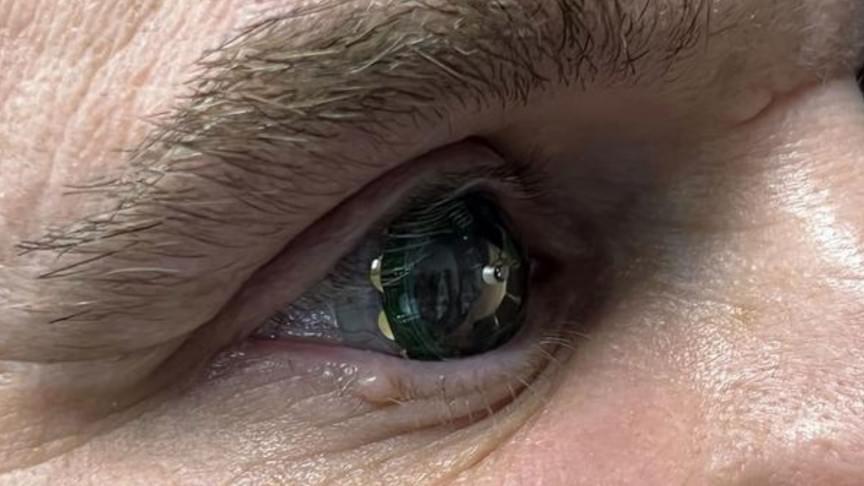The theory, design, and operation of a nuclear propulsion engine advantages are explained verses conventional chemical rockets such as the Saturn V.
Get the latest international news and world events from around the world.
Can Nuclear Propulsion Take Us to Mars?
Be one of the first 500 people to sign up with this link and get 20% off your subscription with Brilliant.org! https://brilliant.org/RealEngineering/
New streaming platform: https://watchnebula.com/
Vlog channel: https://www.youtube.com/channel/UCMet4qY3027v8KjpaDtDx-g.
Patreon:
https://www.patreon.com/user?u=2825050&ty=h.
Facebook:
http://facebook.com/realengineering1
Instagram:
https://www.instagram.com/brianjamesmcmanus.
Reddit:
https://www.reddit.com/r/RealEngineering/
Twitter:
https://twitter.com/thebrianmcmanus.
Discord:
https://discord.gg/s8BhkmN
Get your Real Engineering shirts at: https://standard.tv/collections/real-engineering.
Credits:
Is Interstellar Travel Impossible?
PBS Member Stations rely on viewers like you. To support your local station, go to: http://to.pbs.org/DonateSPACE
Sign Up on Patreon to get access to the Space Time Discord!
https://www.patreon.com/pbsspacetime.
Space is pretty deadly. But is it so deadly that we’re effectively imprisoned in our solar system forever? Many have said so, but a few have actually figured it out.
Check out the Space Time Merch Store.
https://www.pbsspacetime.com/shop.
Sign up for the mailing list to get episode notifications and hear special announcements!
https://mailchi.mp/1a6eb8f2717d/spacetime.
Search the Entire Space Time Library Here: https://search.pbsspacetime.com/
5 REAL Possibilities for Interstellar Travel
Tweet at us! @pbsspacetime.
Facebook: facebook.com/pbsspacetime.
Email us! pbsspacetime [at] gmail [dot] com.
Comment on Reddit: http://www.reddit.com/r/pbsspacetime.
Support us on Patreon! http://www.patreon.com/pbsspacetime.
Help translate our videos! https://www.youtube.com/timedtext_cs_panel?tab=2&c=UC7_gcs09iThXybpVgjHZ_7g.
The prospect of interstellar travel is no longer sci-fi. It COULD be achievable within our lifetime! But, how would an interstellar rocket-ship work? On this week’s episode of Space Time, Matt talks options for interstellar travel — from traditional rocket fuel to antimatter drives, could we travel to other star systems? Watch this episode of Space Time to find out!
“Quantum Entanglement & Spooky Action at a Distance”:
https://www.youtube.com/watch?v=ZuvK-od647c.
“The Real Meaning of E=Mc²”:
“Could You Fart Your Way To The Moon”:
Can We Genetically Engineer Humans for Space?
Traveling far distances in space is difficult, but advances in jet propulsion and genetics are making it possible. Trace is joined by Dr. Kiki Sanford to discuss how by altering the genes in our own bodies, we can make ourselves more fit to survive on other planets!
Follow Kiki on Twitter: https://twitter.com/drkiki.
Check out her website: http://www.about.me/drkiki/
The Habitable Exoplanets Catalog.
http://phl.upr.edu/projects/habitable-exoplanets-catalog.
First Synthetic Yeast Chromosome Revealed.
http://www.nature.com/news/first-synthetic-yeast-chromosome-revealed-1.14941
“It took geneticist Craig Venter 15 years and US $40 million to synthesize the genome of a bacterial parasite. Today, an academic team made up mostly of undergraduate students reports the next leap in synthetic life: the redesign and production of a fully functional chromosome from the baker’s yeast Saccharomyces cerevisiae.”
Reworking the Human Genome So People Can Colonize Other Planets.
http://phys.org/news/2014-03-reworking-human-genome-people-colonize.html.
“If you haven’t thought about reworking the human genome so people can colonize other planets, don’t worry. Plenty of people are on it.”
Genes and Galaxies.
Your Brain In 2050
At present, our brains are mostly dependent on all the stuff below the neck to turn thought into action. But advances in neuroscience are making it easier than ever to hook machines up to minds. See neuroscientists John Donoghue and Sheila Nirenberg, computer scientist Michel Maharbiz, and psychologist Gary Marcus discuss the cutting edge of brain-machine interactions in “Cells to Silicon: Your Brain in 2050,” part of the Big Ideas series at the 2014 World Science Festival.
This program is part of the Big Ideas Series, made possible with support from the John Templeton Foundation.
Visit our Website: http://www.worldsciencefestival.com/
Like us on Facebook: https://www.facebook.com/worldsciencefestival.
Follow us on twitter: https://twitter.com/WorldSciFest.
Original Program date: May 29, 2014
Host: Robert Krulwich.
Participants: Gary Marcus, John Donoghue, Sheila Nirenberg, Michel M. Maharbiz.
Robert Krulwich’s Introduction. 00:11
Participant Introductions. 2:00
Life as a Digital Being
Visit our sponsor, Brilliant: https://brilliant.org/IsaacArthur/
In the future we might see the rise of minds entirely on computers, be it uploaded humans, transhumans, or artificial intelligence. But what would such an existence be like? Would they interact with our world or live in entirely virtual realities or simulated universes?
Visit our Website: http://www.isaacarthur.net.
Support us on Patreon: https://www.patreon.com/IsaacArthur.
SFIA Merchandise available: https://www.signil.com/sfia/
Social Media:
Facebook Group: https://www.facebook.com/groups/1583992725237264/
Reddit: https://www.reddit.com/r/IsaacArthur/
Twitter: https://twitter.com/Isaac_A_Arthur on Twitter and RT our future content.
SFIA Discord Server: https://discord.gg/53GAShE
Listen or Download the audio of this episode from Soundcloud: Episode’s Audio-only version: https://soundcloud.com/isaac-arthur-148927746/life-as-a-digital-being.
Episode’s Narration-only version: https://soundcloud.com/isaac-arthur-148927746/life-as-a-digi…ation-only.
Credits:
Life as a Digital Being.
Episode 237; May 7, 2020
Writers:

Smart contact lenses with AR display trialed for the first time
Bye bye, AR headsets?Mojo Vision, a California-based company that wants to make augmented reality (AR) capable smart contact lenses, has already conducted the first human trial of its technology. Last week, the company’s CEO Drew Perkins became the first person to use the contact lenses and shared his experience in a blog post.
Mojo Vision’s device design includes many firsts and now the prototype is good enough to be trialed. Is the future already here?

FBI says people are using deepfakes to apply for remote tech jobs
What else can deepfakes do?We’ve seen examples of deepfakes being used almost to change the course of history when a Zelensky footage emerged back in March and told the Ukrainian army to lay down arms amid the Russian invasion. Fortunately, it was sloppy, and the army didn’t buy that. And now, if you consider what happens when a post-covid world that birthed many remote job opportunities for digital nomads merges with AI, The FBI Internet Crime Complaint Center (IC3) has t… See more.
The Federal Bureau of Investigation (FBI) has warned that some people are using deepfakes to apply for remote tech jobs.